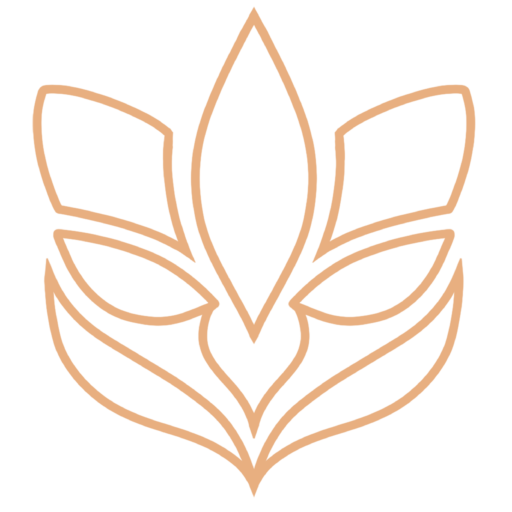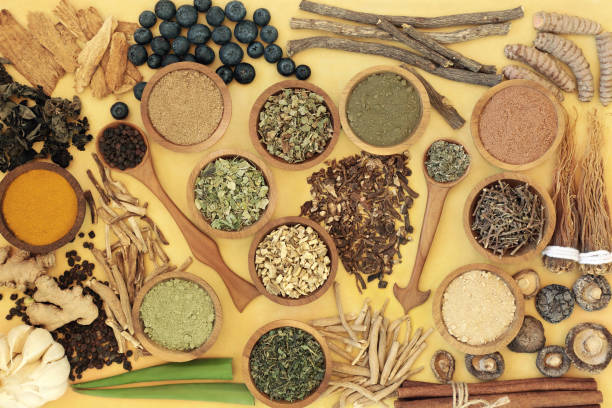For thousands of years, herbs have been used to support immunity, long before the rise of modern medicine. Across different cultures, herbal remedies have played a crucial role in protecting the body from illness, promoting resilience, and enhancing overall well-being. Let’s take a journey through the history of immune-supporting herbs and their continued relevance today.
Ancient Herbal Traditions for Immunity
Traditional Chinese Medicine (TCM)
In Traditional Chinese Medicine, herbs like ginseng, astragalus, and licorice root have been used for centuries to balance the body’s energy (Qi) and strengthen immune function. As early as 200 BCE, herbal formulas were developed to create synergistic effects, promoting overall health and disease resistance. Learn more about TCM and immunity
Ayurveda and Indian Herbal Wisdom
\Ayurveda, one of the world’s oldest medical systems, dating back over 3,000 years, has long relied on herbs like tulsi (holy basil), ashwagandha, and turmeric to boost immunity and combat infections. These adaptogenic and anti-inflammatory herbs remain integral to Ayurvedic wellness practices today. Discover Ayurvedic herbs for immunity
Ancient Egyptian Herbal Medicine
The Ancient Egyptians valued herbs such as garlic and onion for their antimicrobial and immune-enhancing properties. These powerful botanicals were used to treat infections and promote overall health, showcasing early knowledge of natural disease prevention. Explore the medicinal uses of garlic
Native American Herbal Practices
Native American tribes harnessed the immune-supporting benefits of echinacea, elderberry, and goldenseal to treat colds, flu, and wounds. These herbs are still in use today in natural remedies for immune health. Read about Native American herbal medicine
Medieval and Renaissance Herbal Use
During the Middle Ages, herbs played a critical role in fighting plagues and diseases in the absence of modern hygiene and medicine. Thyme and Rosemary were commonly used to purify the air and prevent infections, particularly during outbreaks like the Black Death. European monasteries cultivated healing herbs such as Sage and Echinacea for their immune-boosting benefits. Learn about medieval herbal medicine
The Evolution of Herbal Remedies in Modern Medicine
As scientific understanding progressed, herbal remedies were studied more systematically. The immune-enhancing properties of garlic, ginger, and elderberry gained recognition, and certain plant compounds, like quinine from cinchona bark, paved the way for modern pharmaceuticals. Before the advent of antibiotics, many herbal treatments were essential for managing infections. Find out more about plant-derived medicines
The Resurgence of Herbal Immunity Support in the 20th & 21st Centuries
With increasing interest in natural and holistic health, herbal supplements, teas, and extracts have become widely accessible. Scientific studies continue to validate the immune-boosting properties of various herbs:
- Echinacea: Shown to help reduce the duration and severity of colds. Research on echinacea
- Turmeric (Curcumin): Proven to reduce inflammation and support immune response. Curcumin and immune health
- Ginger: Recognized for its antimicrobial and anti-inflammatory benefits. Health benefits of ginger
Herbs and Modern Integrative Medicine
Today, many physicians incorporate herbal remedies alongside conventional treatments in Integrative Medicine to enhance immune function, particularly for managing chronic conditions and supporting recovery. The COVID-19 pandemic further highlighted the role of herbs such as elderberry, ginger, and turmeric in immune health, reinforcing their lasting significance. Read about integrative medicine and herbs
The Timeless Value of Herbs in Immune Support
The history of herbs and immunity is a testament to their enduring role in health and wellness. From ancient traditions to modern scientific validation, these natural remedies continue to bridge cultures and generations. As interest in holistic health grows, herbs remain a trusted ally for those seeking natural ways to enhance their immune system and overall well-being.

